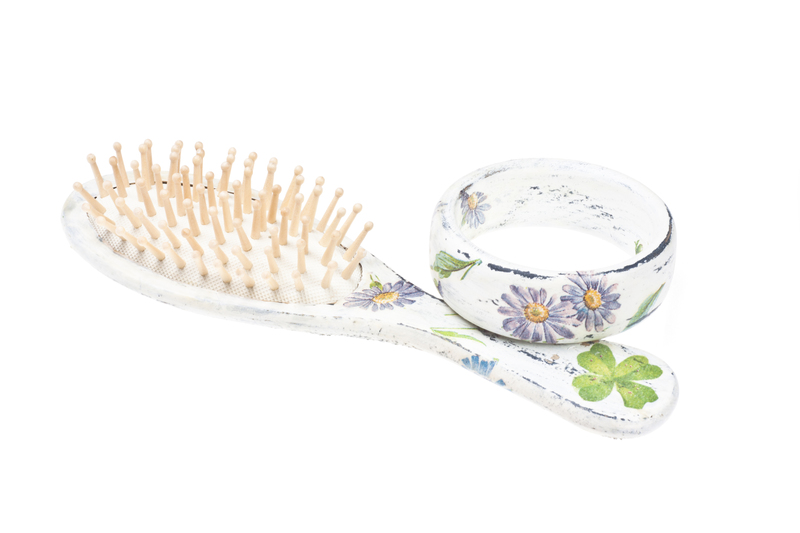Unlock Stress Relief Through the Art of De-cluttering Your Space
Are you feeling overwhelmed in your own home or workspace? Do you often find that clutter piles up, leaving you stressed and unable to focus? The solution to your stress relief might be closer than you think. De-cluttering your space isn't just about tidying; it's about reclaiming peace of mind and boosting your well-being. In this comprehensive article, we'll explore how stress relief through de-cluttering is not only possible but transformative, and we'll give you practical steps and proven tips to start your own journey.

Why Clutter Causes Stress
Clutter is more than just a visual nuisance. Studies reveal that messy environments can increase cortisol, the primary stress hormone in your body. If you've ever felt anxious when your room is chaotic or struggled to relax in a disorganized workspace, you've experienced the direct impact of clutter on your mental health.
- Cognitive overload: Clutter bombards your mind with stimuli, making it difficult to process information.
- Lack of focus: Disorganization can reduce your ability to concentrate, lowering your productivity.
- Impaired relaxation: Messy environments inhibit your mind's ability to switch off and recharge.
- Emotional weight: Belongings linked to the past or negative memories can stir up complex emotions, increasing stress.
In short, clutter robs you of tranquility. But the act of de-cluttering creates space not just in your physical environment, but in your mind as well, unlocking powerful stress relief benefits.
How De-cluttering Your Home or Work Space Reduces Stress
The Science Behind De-cluttering and Stress Relief
Scientific research has shown that living in a cluttered environment triggers a constant low-grade "fight or flight" response. Cortisol levels increase, and chronic exposure to clutter can lead to anxiety, insomnia, and even depression. De-cluttering interrupts this cycle, sending calming signals to your brain.
When you clear away unnecessary items, your brain can finally rest. This boosts your mood, sharpens your focus, and restores a deep sense of control. The very act of sorting and organizing also provides a mindful, meditative effect, offering immediate stress relief.
Benefits of De-cluttering for Stress Relief
- Enhanced calmness: A tidy space supports relaxation and reduces feelings of anxiety.
- Improved productivity: Removing clutter streamlines your thoughts and efficiency.
- Better sleep: Clean bedrooms support restful sleep, a key to lowering stress levels.
- Greater happiness: An organized environment has been linked to higher satisfaction and joy.
- Heightened energy: Physical clutter drains energy. De-cluttering revitalizes motivation and drive.
Mastering the Art of De-cluttering: Step-by-Step Guide
Ready to unlock stress relief through de-cluttering? Here's a proven strategy that goes beyond just "throwing things away." You'll learn how to de-clutter your space mindfully and sustainably for maximum emotional and mental benefits.
Step 1: Set a Clear Intent for De-cluttering
Before you begin any de-cluttering project, pause and ask yourself: What do I hope to feel when my space is tidy? Maybe it's calm, energy, or focus. Setting a clear intent infuses meaning into your de-cluttering process, keeping you motivated and tuned in to the stress relieving effects.
Step 2: Start Small and Stay Consistent
- Tackle one area at a time: Break your space into zones (desk, closet, kitchen counter, etc.).
- Time-box your sessions: Set a timer for 15 or 30 minutes to avoid burnout.
- Celebrate what you achieve: Appreciate each cleared area to build momentum.
Step 3: Sort Items with Purpose
Go through your belongings and sort them into three categories:
- Keep: Items you use regularly or that bring you genuine joy.
- Donate: Good-condition items that no longer serve you but could help someone else.
- Discard/Recycle: Broken, expired, or unnecessary items.
This deliberate sorting reduces emotional friction and supports lasting de-cluttering success.
Step 4: Organize What Matters
For what remains, find practical, accessible storage solutions. Think baskets, shelves, drawer organizers, and labels. An organized space is much easier to maintain long-term, further cementing the stress relief benefits of de-cluttering.
- Store visible items neatly: Keep surfaces as clear as possible for an open, calming effect.
- Arrange items by frequency of use: Often-used belongings should be easy to reach; rarely-used items can be tucked away.
- Group like with like: Creating designated spots cuts down on time spent searching and helps maintain order.
Step 5: Maintain and Celebrate Your Clutter-Free Space
De-cluttering isn't a "one and done" effort; it's an ongoing practice. Set 10-15 minutes each week for a quick "reset." Reflect on how your calmer environment impacts your mood, focus, and overall wellness.
Notice: Are you breathing easier? Sleeping more soundly? Enjoying your home or office more? These are all signs of stress relief unlocked by a decluttered environment.
Room-by-Room De-cluttering Tips for Stress Relief
De-cluttering Your Bedroom
- Keep surfaces clear: Nightstands, dressers, and floors should be free from piles of clothes, books, or knick-knacks.
- Organize your closet: Donate or recycle clothes you haven't worn in a year.
- Under-bed storage: Use bins or drawers to keep rarely used items out of sight but accessible.
Sleep experts agree: a simple, tidy bedroom is key for restful sleep and less stress.
Tackling the Home Office
- Clear your desk daily: At the end of each workday, put away papers and supplies.
- Go digital: Scan important documents and store them electronically to reduce paper clutter.
- Cable management: Use clips and ties to keep cords organized and tangle-free.
A minimalist, organized workspace enhances your focus, reduces mental clutter, and eases work-related stress.
Kitchen De-cluttering for Calm
- Streamline your counters: Keep only daily-use appliances out; store the rest.
- Purge expired items: Regularly check and discard old pantry and fridge items.
- Zone your shelves: Group similar items for easier meal prep and less stress.
A tidy kitchen makes cooking less of a chore and supports healthy, stress-free eating habits.
Living Room Serenity
- Use multi-purpose furniture: Ottomans and coffee tables with built-in storage can hide away remotes, magazines, or games.
- Limit decor: Display only meaningful art or items that promote happiness.
- Designate zones: Create separate areas for relaxation, reading, or entertainment.
Declutter Your Mind: The Emotional Side of Letting Go
De-cluttering your space is also about addressing the emotions attached to your things. Many of us keep items out of guilt, obligation, or nostalgia, which can create emotional clutter.
- Practice gratitude and release: Thank items for their service before letting them go (a technique popularized by Marie Kondo).
- Focus on your desired feeling: Remind yourself that letting go of clutter is a gift to your future self.
- Seek support if needed: Enlist a friend or professional organizer if emotional ties to belongings feel overwhelming.
Clearing out physical clutter often leads to emotional clarity and peace.
How to Make De-cluttering a Sustainable Stress Reliever
Adopt Daily Mini-Habits
- One-in, one-out rule: Whenever you buy something new, let go of a similar old item.
- 5-minute tidy: Take five minutes at the end of each day to reset a trouble spot.
- Monthly reviews: Use recurring calendar reminders to tackle a different spot each month.
Reframe De-cluttering as Self-Care
View each tidying session as an act of self-love and restoration--you are nurturing your well-being, not just your home. The more you practice de-cluttering for stress relief, the easier it becomes to maintain.
De-cluttering and Minimalism: Are They the Same?
While both focus on simplifying your life, de-cluttering is about reducing excess and clearing what doesn't serve you. Minimalism is a lifestyle built around purposefully choosing to live with less. You don't have to become a minimalist to enjoy the calming, stress-reducing effects of a decluttered life. Just removing the excess that distracts, overwhelms, or weighs on you is enough to bring relief.
Helpful Tools and Resources for Stress-Relieving De-cluttering
- Donation pick-up services: Many charities will pick up unwanted items from your home.
- Organizing containers: Invest in bins, trays, and drawer dividers for easy organization.
- De-cluttering checklists: Printable guides can keep you focused and motivated.
- Apps for minimalists: Try digital tools to track what you own and keep clutter at bay.

Frequently Asked Questions about De-cluttering and Stress Relief
How often should I de-clutter?
For ongoing stress relief, aim to do a mini declutter weekly and major purges seasonally. Adapt this to your lifestyle and space.
What if I feel too overwhelmed to start?
Start with the smallest area--a single drawer or table. Set a timer and commit to just five minutes. Success builds confidence and momentum.
Can de-cluttering help with anxiety and depression?
Yes, research shows that reducing clutter can improve overall mood and decrease anxiety symptoms. If mental health challenges are severe, seek additional support from a professional.
Conclusion: Experience Lasting Stress Relief with De-cluttering
Unlocking stress relief through the art of de-cluttering your space is one of the most powerful, immediate, and accessible ways to boost your quality of life. By intentionally clearing your environment, you create a sanctuary--one that soothes your mind, uplifts your spirit, and sets you up for genuine well-being. Ready to reclaim peace and energy? Start de-cluttering today, and unlock the stress-free life you deserve!